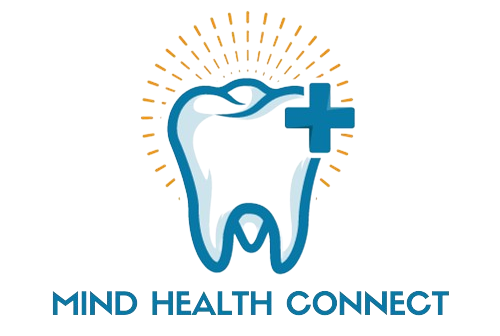Key Takeaways
- Definition of TMS: Transcranial Magnetic Stimulation (TMS) is a non-invasive therapy that uses magnetic fields to stimulate nerve cells in the brain, primarily for treating depression when other treatments fail.
- Mechanism of Action: TMS works by delivering brief magnetic pulses to specific brain areas involved in mood regulation, enhancing neural communication and activity.
- Types of TMS: The two main forms are Repetitive TMS (rTMS), which targets narrow brain regions, and Deep TMS (dTMS), designed for broader stimulation of deeper brain structures.
- Clinical Applications: FDA-approved for conditions like major depressive disorder and obsessive-compulsive disorder, TMS also shows potential in managing chronic pain and anxiety disorders.
- Benefits Over Traditional Treatments: As a non-invasive procedure with minimal side effects, TMS offers an effective alternative to conventional therapies without impacting systemic health or requiring anaesthesia.
- Common Side Effects: While generally safe, some patients may experience mild headaches or scalp discomfort during sessions; however, these tend to diminish over time.
Transcranial Magnetic Stimulation (TMS) is a non-invasive therapy using magnetic fields to stimulate nerve cells in the brain, primarily treating depression when traditional treatments prove ineffective. This FDA-approved procedure delivers brief magnetic pulses to specific brain areas involved in mood regulation, offering minimal side effects and requiring no anaesthesia. Neuralia TMS provides tailored treatment plans for patients seeking innovative mental health solutions in Melbourne.
What Is TMS?
Transcranial Magnetic Stimulation (TMS) is a non-invasive therapy that employs magnetic fields to stimulate nerve cells in the brain. Primarily used for treating depression, it targets specific brain areas to improve mood and alleviate symptoms when standard treatments are ineffective.
During a TMS session, an electromagnetic coil is placed against the scalp. It generates brief magnetic pulses that activate neurons, promoting improved communication within neural circuits associated with mood regulation. Each session typically lasts 20-40 minutes and requires multiple visits over several weeks.
Neuralia TMS, located in Melbourne, offers this innovative therapy to patients seeking alternatives for mental health challenges. The clinic provides tailored treatment plans based on individual needs, ensuring comprehensive care throughout the process.
Research continues into TMS’s broader applications beyond depression, including anxiety disorders and post-traumatic stress disorder (PTSD). As studies advance, TMS may present new hope for individuals managing various mental health conditions.
The Mechanism of TMS
Transcranial Magnetic Stimulation (TMS) employs magnetic fields to modulate neural activity in targeted brain regions. This non-invasive technique delivers short magnetic pulses through a coil positioned against the scalp, generating an electric current that stimulates nerve cells. By altering neuronal excitability, TMS can either improve or reduce brain activity, depending on the pulse frequency and pattern used during treatment.
How TMS Works
TMS operates by applying magnetic pulses to specific areas involved in mood regulation. For instance, placing the coil over the left prefrontal cortex can help alleviate symptoms of depression. A typical session lasts between 20-40 minutes and requires multiple treatments over several weeks to achieve optimal results. Patients experience minimal discomfort, with many reporting no adverse effects following sessions at facilities like Neuralia TMS in Melbourne.
Types of TMS
Two primary types of TMS are widely used:
- Repetitive TMS (rTMS): This common form delivers repeated magnetic pulses using a figure-of-eight coil to precisely target narrow brain areas. It’s FDA-approved for conditions like depression and obsessive-compulsive disorder (OCD).
- Deep TMS (dTMS): This variant utilises an H-coil designed as a helmet for broader stimulation coverage. It penetrates deeper brain structures, making it beneficial for patients requiring more extensive treatment options.
Both methods demonstrate safety with rare side effects when administered properly, offering hope for individuals seeking effective mental health therapies at clinics such as Neuralia TMS.
Benefits of TMS
Transcranial Magnetic Stimulation (TMS) offers several significant advantages for individuals seeking treatment for mental health issues. This non-invasive procedure provides effective relief, particularly for those who do not respond to traditional therapies.
Clinical Applications
TMS receives FDA approval for multiple conditions, showcasing its versatility in treating mental health disorders. It specifically targets major depressive disorder (MDD), where it stimulates the prefrontal cortex to improve neural activity. The FDA also approved TMS in 2018 for obsessive-compulsive disorder (OCD), helping to reduce excessive brain circuit activity linked to OCD symptoms. Additionally, TMS shows promise in managing chronic pain and is under investigation for anxiety disorders and post-traumatic stress disorder (PTSD). Local providers like Neuralia TMS in Melbourne offer tailored treatment plans that align with each patient’s unique needs.
Advantages Over Traditional Treatments
TMS presents several advantages over conventional treatments. It remains non-invasive, eliminating risks associated with surgery or medication side effects. Patients typically experience minimal discomfort during sessions, unlike some pharmacotherapies that may cause nausea or weight gain. Additionally, TMS specifically targets affected brain areas without systemic impact on the body. Sessions occur in an outpatient setting without anaesthesia, allowing patients to resume daily activities immediately after treatment—providing a practical option as they pursue their recovery journey at facilities like Neuralia TMS.
Potential Side Effects of TMS
TMS therapy is generally safe, but some patients may experience side effects. Understanding these potential reactions helps in making informed decisions about treatment.
Common Reactions
Mild headaches and localised scalp discomfort are the most frequent side effects during and after TMS sessions. These reactions usually stem from muscle contractions or trigeminal nerve responses. Patients often find these symptoms manageable with over-the-counter painkillers. Other less common issues include toothache, earache, facial twitching, neck pain, lightheadedness, sleepiness, and temporary changes in cognition during treatment. Most patients adapt over time as these side effects typically diminish.
Long-term Considerations
Research indicates no significant long-term adverse effects associated with TMS therapy. Patients undergoing treatment rarely report persistent side effects after completing their sessions. TMS has received FDA approval for repeated use in treating conditions like depression and obsessive-compulsive disorder (OCD). Continuous studies improve its efficacy while exploring additional neurological applications. Current evidence does not suggest that TMS contributes to migraines or cognitive impairments in the long term. Neuralia TMS in Melbourne provides tailored care to ensure patient safety and comfort throughout the process.
About Totalcare Dental and Dermal
Totalcare Dental and Dermal, located in Bondi Junction, NSW, offers a comprehensive range of dental services with a focus on improving and maintaining oral health in a comfortable, patient-focused environment.
Owned by Ishara Goonewardene, the clinic provides general dentistry, cosmetic treatments, orthodontics, dental implants, and emergency care. In addition to these core services, Totalcare Dental and Dermal specialises in teeth whitening, veneers, and sedation dentistry, ensuring that all patients receive high-quality, personalised care.
Contact:
Ishara Goonewardene, Owner
Phone: (02) 9387 3637
Email: dentist@totalcaredentistry.com.au
Address: Shop 3, Ground Level/1 Spring St, Bondi Junction NSW 2022
Website: www.totalcaredentistry.com.au
Frequently Asked Questions
What is Transcranial Magnetic Stimulation (TMS)?
Transcranial Magnetic Stimulation (TMS) is a non-invasive therapy that uses magnetic fields to stimulate nerve cells in the brain. It’s primarily used to treat depression, particularly when traditional treatments fail. TMS targets specific brain areas to improve mood and alleviate symptoms.
How does TMS work?
TMS works by delivering brief magnetic pulses through an electromagnetic coil placed on the scalp. These pulses create electric currents that stimulate nerve cells, enhancing communication within neural circuits responsible for mood regulation.
What are the types of TMS available?
The two main types of TMS are Repetitive TMS (rTMS), which delivers repeated pulses to targeted areas and is FDA-approved for conditions like depression and OCD, and Deep TMS (dTMS), which uses a helmet-like device for broader stimulation of deeper brain structures.
What are the benefits of TMS therapy?
TMS offers several benefits, including being non-invasive with minimal discomfort. It has shown effectiveness for individuals who do not respond well to traditional therapies and can be tailored to meet each patient’s unique needs through personalised treatment plans.
Are there side effects associated with TMS?
While generally safe, some patients may experience mild side effects such as headaches or scalp discomfort during sessions. Other less common effects include toothaches or lightheadedness. Most side effects diminish over time, and serious long-term issues have not been reported.
How long does a typical TMS session last?
A typical TMS session lasts between 20-40 minutes. Patients usually require multiple visits over several weeks for optimal results while maintaining their daily activities without interruption after each session.
Is TSM approved for treating other conditions besides depression?
Yes, TSM is FDA-approved for various conditions beyond depression, including obsessive-compulsive disorder (OCD), chronic pain, anxiety disorders, and post-traumatic stress disorder (PTSD). Ongoing research continues exploring its broader applications in mental health treatment.
Where can I receive TSM treatment in Melbourne?
Neuralia TMS offers specialised treatment plans tailored to individual patient needs in Melbourne. They focus on providing comprehensive care throughout your journey with Transcranial Magnetic Stimulation therapy.

